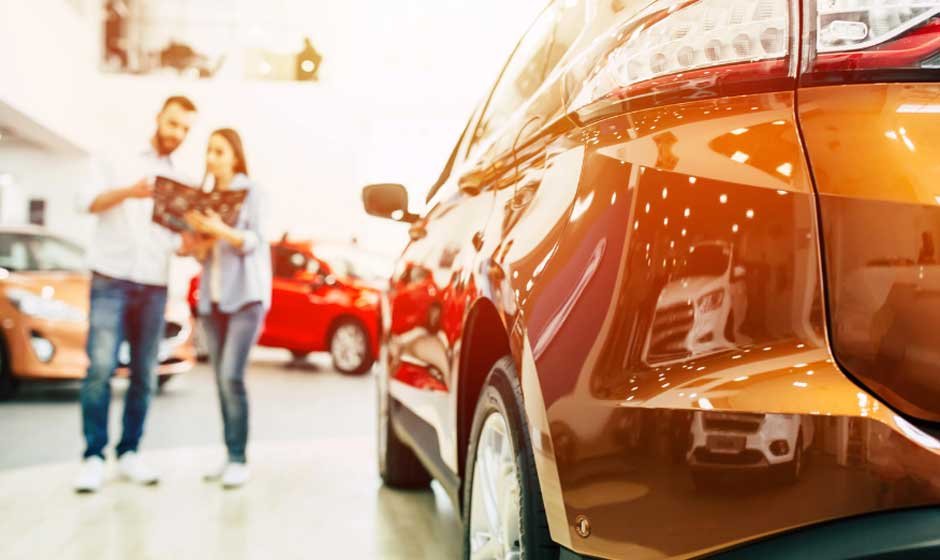Car dealerships play a crucial role in providing consumers with vehicles that meet strict quality and safety standards. When purchasing a vehicle, customers expect it to have undergone thorough checks and meet all regulatory requirements. Dealerships not only sell cars but also ensure that every vehicle on their lot is reliable and safe for road use. They accomplish this through a combination of manufacturer guidelines, inspections, and maintenance protocols designed to uphold vehicle standards. We will explore the various ways dealerships maintain the quality and safety of vehicles, emphasizing the processes and measures that protect buyers and enhance their confidence in their purchase.
How Dealerships Maintain Vehicle Quality and Safety
Comprehensive Inspection and Certification Processes
Before a vehicle is made available for sale, a car dealership subjects it to rigorous inspections. These inspections extend beyond a quick visual check, encompassing detailed assessments of the engine, brakes, tires, lights, and safety features, including airbags and seatbelts. For used cars, dealerships often follow certification programs that require meeting specific criteria to earn a “certified” status. These programs typically involve multi-point inspections, during which hundreds of components are reviewed, repaired as necessary, and tested to confirm that the vehicle meets manufacturer and safety standards. This process assures buyers that the vehicle has undergone thorough vetting, minimizing the risk of hidden mechanical or safety issues.
Adherence to Manufacturer Guidelines
Dealerships maintain close communication with vehicle manufacturers to stay updated on recalls, software updates, and maintenance recommendations. Manufacturers provide detailed service schedules and quality checklists that dealerships use to maintain cars both before and after sale. This includes ensuring that new cars leave the lot with all manufacturer-installed safety equipment functioning correctly. Additionally, dealerships implement any recall repairs as soon as they are announced, guaranteeing that vehicles comply with the latest safety standards. This adherence to manufacturer requirements helps uphold the integrity of the vehicle and protects customers from potential safety risks.
Use of Certified Technicians for Maintenance and Repairs
To maintain vehicle quality and safety, dealerships employ technicians trained to work on specific makes and models. These technicians have access to manufacturer tools, parts, and diagnostic software, which enable them to diagnose and repair issues accurately. When repairs or maintenance are necessary, whether during the dealership’s inspection process or after purchase, these trained professionals ensure that the work is done according to strict standards. Their thorough understanding of each vehicle’s systems enables them to address potential problems effectively before the vehicle is sold, further assuring customers of a dependable and safe vehicle.
Thorough Vehicle History Reports for Used Cars
For pre-owned vehicles, dealerships provide buyers with detailed vehicle history reports. These reports include information about previous ownership, accident history, service records, and title status. Having access to this data enables dealerships to identify vehicles that may have sustained serious damage or experienced neglect in maintenance, which could impact safety and performance. By screening out vehicles with questionable histories or repairing any detected issues, dealerships ensure that only quality, safe vehicles are sold. This transparency gives buyers confidence in their purchase, knowing that the car has been properly evaluated beyond just its appearance.
Ongoing Quality Control through Regular Maintenance Services
Dealerships encourage customers to return for regular maintenance and servicing, which plays a vital role in keeping vehicles safe and performing well over time. Scheduled maintenance includes oil changes, brake inspections, tire rotations, and system checks that help detect issues before they become major problems. Dealerships also remind customers of upcoming service intervals based on mileage or time, ensuring that vehicles stay in optimal condition. This continued care supports long-term safety by addressing wear and tear and preventing failures that could compromise the vehicle’s operation.
Compliance with State and Federal Safety Regulations
Every vehicle sold at a dealership must meet local, state, and federal safety regulations. These rules cover essential safety standards, including crashworthiness, emissions, lighting, and occupant protection. Dealerships are responsible for ensuring that all vehicles on their lot comply with these requirements before offering them for sale. This includes verifying that safety inspections have been completed and certifications obtained where necessary. By strictly following regulatory guidelines, dealerships ensure that consumers receive vehicles that meet legal standards designed to protect drivers, passengers, and other road users.
Implementation of Customer Feedback and Continuous Improvement
Car dealerships often collect customer feedback on vehicle performance and safety to monitor ongoing satisfaction and address emerging issues. This feedback can help dealerships identify patterns or recalls that may require further action. Some dealerships use this information to enhance their inspection checklists or improve communication with manufacturers. By responding to customers’ concerns and proactively addressing potential safety problems, dealerships demonstrate a commitment to maintaining vehicle quality. This approach not only improves individual customer experiences but also contributes to broader efforts to raise safety standards within the automotive industry.
Car dealerships take numerous steps to guarantee that the vehicles they sell meet high standards of quality and safety. From detailed inspections and adherence to manufacturer guidelines to ongoing maintenance services and the use of advanced diagnostics, dealerships work to ensure every car on their lot is dependable and secure. These efforts help protect customers and provide peace of mind, allowing buyers to trust that their vehicle is ready for the road.
The commitment of car dealerships to vehicle quality and safety is evident in their comprehensive processes and continuous efforts. Through thorough inspections, collaboration with manufacturers, use of trained technicians, and adherence to regulatory standards, dealerships prioritize consumer protection and vehicle reliability. This focus helps maintain confidence in the cars sold and supports safer roads for everyone. Customers benefit from the dealership’s dedication to quality assurance, knowing that the vehicle they drive has been carefully prepared and maintained for optimal safety and performance.










